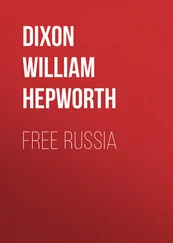Nikolai Nekrasov - Who Can Be Happy and Free in Russia?
Здесь есть возможность читать онлайн «Nikolai Nekrasov - Who Can Be Happy and Free in Russia?» весь текст электронной книги совершенно бесплатно (целиком полную версию без сокращений). В некоторых случаях можно слушать аудио, скачать через торрент в формате fb2 и присутствует краткое содержание. Год выпуска: 2005, Жанр: Поэзия, на английском языке. Описание произведения, (предисловие) а так же отзывы посетителей доступны на портале библиотеки ЛибКат.
- Название:Who Can Be Happy and Free in Russia?
- Автор:
- Жанр:
- Год:2005
- ISBN:нет данных
- Рейтинг книги:3 / 5. Голосов: 1
-
Избранное:Добавить в избранное
- Отзывы:
-
Ваша оценка:
- 60
- 1
- 2
- 3
- 4
- 5
Who Can Be Happy and Free in Russia?: краткое содержание, описание и аннотация
Предлагаем к чтению аннотацию, описание, краткое содержание или предисловие (зависит от того, что написал сам автор книги «Who Can Be Happy and Free in Russia?»). Если вы не нашли необходимую информацию о книге — напишите в комментариях, мы постараемся отыскать её.
Who Can Be Happy and Free in Russia? — читать онлайн бесплатно полную книгу (весь текст) целиком
Ниже представлен текст книги, разбитый по страницам. Система сохранения места последней прочитанной страницы, позволяет с удобством читать онлайн бесплатно книгу «Who Can Be Happy and Free in Russia?», без необходимости каждый раз заново искать на чём Вы остановились. Поставьте закладку, и сможете в любой момент перейти на страницу, на которой закончили чтение.
Интервал:
Закладка:
And in the bare hayfields,
Which look just as naked
As any youth's cheek
After yesterday's shaving, 20
The Princes Volkonsky [37] The haystacks.
Are haughtily standing,
And round them their children,
Who (unlike all others)
Are born at an earlier
Date than their sires.
"The fields are enormous,"
Remarks old Pakhóm,
"Why, the folk must be giants."
The two brothers Goóbin 30
Are smiling at something:
For some time they've noticed
A very tall peasant
Who stands with a pitcher
On top of a haystack;
He drinks, and a woman
Below, with a hay-fork,
Is looking at him
With her head leaning back.
The peasants walk on 40
Till they come to the haystack;
The man is still drinking;
They pass it quite slowly,
Go fifty steps farther,
Then all turn together
And look at the haystack.
Not much has been altered:
The peasant is standing
With body bent back
As before,—but the pitcher 50
Has turned bottom upwards….
The strangers go farther.
The camps are thrown out
On the banks of the river;
And there the old people
And children are gathered,
And horses are waiting
With big empty waggons;
And then, in the fields
Behind those that are finished, 60
The distance is filled
By the army of workers,
The white shirts of women,
The men's brightly coloured,
And voices and laughter,
With all intermingled
The hum of the scythes….
"God help you, good fellows!"
"Our thanks to you, brothers!"
The peasants stand noting 70
The long line of mowers,
The poise of the scythes
And their sweep through the sunshine.
The rhythmical swell
Of melodious murmur.
The timid grass stands
For a moment, and trembles,
Then falls with a sigh….
On the banks of the Volga
The grass has grown high 80
And the mowers work gladly.
The peasants soon feel
That they cannot resist it.
"It's long since we've stretched ourselves,
Come, let us help you!"
And now seven women
Have yielded their places.
The spirit of work
Is devouring our peasants;
Like teeth in a ravenous 90
Mouth they are working—
The muscular arms,
And the long grass is falling
To songs that are strange
To this part of the country,
To songs that are taught
By the blizzards and snow-storms,
The wild savage winds
Of the peasants' own homelands:
"Bleak," "Burnt-Out," and "Hungry," 100
"Patched," "Bare-Foot," and "Shabby,"
And "Harvestless," too….
And when the strong craving
For work is appeased
They sit down by a haystack.
"From whence have you come?"
A grey-headed old peasant
(The one whom the women
Call Vlásuchka) asks them,
"And where are you going?" 110
"We are—" say the peasants,
Then suddenly stop,
There's some music approaching!
"Oh, that's the Pomyéshchick
Returning from boating!"
Says Vlásuchka, running
To busy the mowers:
"Wake up! Look alive there!
And mind—above all things,
Don't heat the Pomyéshchick 120
And don't make him angry!
And if he abuse you,
Bow low and say nothing,
And if he should praise you,
Start lustily cheering.
You women, stop cackling!
And get to your forks!"
A big burly peasant
With beard long and bushy
Bestirs himself also 130
To busy them all,
Then puts on his "kaftan," [38] A long-skirted coat.
And runs away quickly
To meet the Pomyéshchick.
And now to the bank-side
Three boats are approaching.
In one sit the servants
And band of musicians,
Most busily playing;
The second one groans 140
'Neath a mountainous wet-nurse,
Who dandles a baby,
A withered old dry-nurse,
A motionless body
Of ancient retainers.
And then in the third
There are sitting the gentry:
Two beautiful ladies
(One slender and fair-haired,
One heavy and black-browed) 150
And two moustached Barins
And three little Barins,
And last—the Pomyéshchick,
A very old man
Wearing long white moustaches
(He seems to be all white);
His cap, broad and high-crowned,
Is white, with a peak,
In the front, of red satin.
His body is lean 160
As a hare's in the winter,
His nose like a hawk's beak,
His eyes—well, they differ:
The one sharp and shining,
The other—the left eye—
Is sightless and blank,
Like a dull leaden farthing.
Some woolly white poodles
With tufts on their ankles
Are in the boat too. 170
The old man alighting
Has mounted the bank,
Where for long he reposes
Upon a red carpet
Spread out by the servants.
And then he arises
To visit the mowers,
To pass through the fields
On a tour of inspection.
He leans on the arm— 180
Now of one of the Barins,
And now upon those
Of the beautiful ladies.
And so with his suite—
With the three little Barins,
The wet-nurse, the dry-nurse,
The ancient retainers,
The woolly white poodles,—
Along through the hayfields
Proceeds the Pomyéshchick. 190
The peasants on all sides
Bow down to the ground;
And the big, burly peasant
(The Elder he is
As the peasants have noticed)
Is cringing and bending
Before the Pomyéshchick,
Just like the Big Devil
Before the high altar:
"Just so! Yes, Your Highness, 200
It's done, at your bidding!"
I think he will soon fall
Before the Pomyéshchick
And roll in the dust….
So moves the procession,
Until it stops short
In the front of a haystack
Of wonderful size,
Only this day erected.
The old man is poking 210
His forefinger in it,
He thinks it is damp,
And he blazes with fury:
"Is this how you rot
The best goods of your master?
I'll rot you with barschin, [39] The forced labour of the serfs for their owners.
I'll make you repent it!
Undo it—at once!"
The Elder is writhing
In great agitation: 220
"I was not quite careful
Enough, and it is damp.
It's my fault, Your Highness!"
He summons the peasants,
Who run with their pitchforks
To punish the monster.
And soon they have spread it
In small heaps around,
At the feet of the master;
His wrath is appeased. 230
(In the meantime the strangers
Examine the hay—It's
like tinder—so dry!)
Интервал:
Закладка:
Похожие книги на «Who Can Be Happy and Free in Russia?»
Представляем Вашему вниманию похожие книги на «Who Can Be Happy and Free in Russia?» списком для выбора. Мы отобрали схожую по названию и смыслу литературу в надежде предоставить читателям больше вариантов отыскать новые, интересные, ещё непрочитанные произведения.
Обсуждение, отзывы о книге «Who Can Be Happy and Free in Russia?» и просто собственные мнения читателей. Оставьте ваши комментарии, напишите, что Вы думаете о произведении, его смысле или главных героях. Укажите что конкретно понравилось, а что нет, и почему Вы так считаете.











